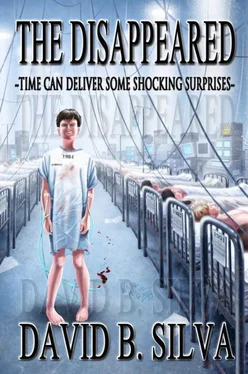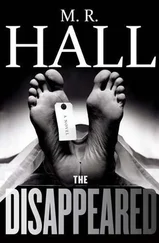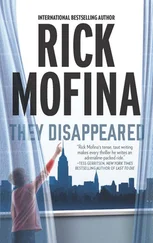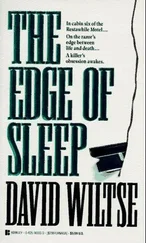She glanced up the quiet street. Both sides were lined with oaks, the gutters filled with leaves and twigs and wind-blown wrappers from the Bartel’s Drive-Thru a couple of blocks down. The sound of a distant train rumbled through, and a white station wagon with a woman and two small children crept down the street and turned left at the corner.
How paranoid is too paranoid? Teri wondered as she watched the car disappear. If anyone had earned the right, she supposed, it had certainly been her. But the never ending suspicion, the constant mistrust… Teri didn’t like the ease with which they had made themselves at home inside her.
“Guess now’s as good a time as any,” she said.
The boy, who had been sitting with his back against the fence, stood up and brushed off the seat of his pants.
They entered the clinic through the back door, which opened to a short hallway, offices on either side. Dr. Childs’s office was the first one on the left. Apparently, like everyone else, he liked to be the first one out the door at the end of the day.
“In here,” Teri said.
The boy pointed questioningly at the doorway.
She nodded, gave him a nudge into the room, and closed the door behind her. She had never been in the doctor’s office before, which surprised her now that she thought about it. Childs had been her doctor since, well, since college. Better than twenty years now.
Built-in bookshelves lined three of the four walls. Open spaces here and there were decorated with diplomas and honorary degrees and awards for community service. The desk was a dark, expensive mahogany. A stack of paperwork looking nearly insurmountable cluttered the desktop. The only window in the room opened to the parking lot in back. She could see the corner of the fence across the street where they had waited.
“Now what?”
“As usual, we wait.”
“Again?”
“You have a hot date this afternoon?”
“Mom…” He plopped down in the nearest chair, a swivel chair, and energetically began to pedal himself in circles.
Teri roamed aimlessly about the room. She thumbed through a couple of volumes from the doctor’s medical library, finding them either over her head or tediously dry. Then she casually shuffled through some of the papers on the desk, hoping she might come across Gabe’s file. No such luck.
“How long do we have to wait?” he asked again.
“Until the doctor shows up.”
She had not made an appointment. First, because she hadn’t been sure when she would be stopping by to see him. And second, because after the last visit, she thought it might be wise if no one knew when she was coming.
A little caution never hurt, according to Michael.
She was going to remember that.
The boy grumbled under his breath, then gave himself another spin in the chair.
Teri wandered over to the far wall, where a mix of photographs and community service awards had been mounted quite some time ago by the dust on the frames. 1990 Chairman of the Santa Clara County Health Fair. 1993 Houghton Award for Outstanding Community Service. 1980 Glazier Award for Gerontological Research. Some photographs taken at a lab somewhere, with everyone dressed in white lab jackets. And then something that caught her attention.
It was a photograph of the steps outside the library at U.C. Berkeley. She recognized it immediately. Teri had spent two years at Berkeley in the mid-Seventies. That was where she had met Michael, who was studying as an art major at the time. Standing on the steps, at the middle of a semicircle of men, was Dr. Childs. He was all smiles then, and Teri shook her head, thinking he must have used them all up that year, because as long as she had known the man, he had rarely worn a smile. Never, ever, a warm smile.
Beneath the photo, the caption read: Magical Mystery Tour. Berkeley. 1976.
“Wonder what that’s supposed to mean,” she said.
Behind her, the door to the office swung open.
Dr. Childs, holding a folder in the crook of his arm, stepped through, clearly self-absorbed. He closed the door, turned and only then did he realize he wasn’t alone. Surprise crossed his face. He instantly covered it. “Teri? You startled me. What are you doing here?”
“I thought I’d stop by and see what the test results had to say.”
“Oh, yes, of course.”
“You did say you wanted to see us as early as possible, didn’t you?”
He looked from her to the boy, his expression an unreadable mask, then back to Teri again. “I believe I did at that. I just wasn’t expecting you to show up in my office without an appointment.”
“Well, since we’re already here…”
“Yes, well…” He removed the folder from the crook of his arm, crossed the room, and sat behind the desk. He seemed caught in some sort of bind, as if he didn’t know quite what to say or how to say it. He tossed aside the folder, and looked at Teri with eyes that were a mix of concern and discomfort. He was going to tell her something awful, she thought. Something that would have kept her away if she’d had an inkling that it might be coming.
“I’m not sure where to start,” he said somberly. “Maybe you should sit down, Teri.”
She sat in the chair next to the boy, who had ceased his merry-go-round the moment Childs had entered the room. “I’m not sure I like the way this is starting out.”
“Let me be as straight as I can with you, Teri. Have you ever heard of a disease called Hutchinson-Gilford Syndrome?”
“No, I don’t think so.”
“It’s a degenerative disease that afflicts children.” He sighed, not for the first time, and she realized she had begun to hate the sound it made. It was as if he were trying to lose himself in the air around him. “We don’t really know a lot about it. It’s a rare, genetic disease that seems to speed up the aging process.”
“Oh my God,” she said softly. She had seen a talk show on it once, now that she realized what they were talking about. Geraldo or Donahue or one of those other shows. She couldn’t remember which. These children, these tiny little children, had displayed all the outward signs of premature aging: loss of hair, loss of weight, frailty. Teri couldn’t remember what their life expectancy had been, but she thought it was somewhere around fourteen or fifteen.
My God.
It was happening again. Something hideous had come along and swept the boy up in its jaws as if he were nothing more than a paper doll, and now it was going to fly away with him. Just like it had flown away with him before. Only this time, he wouldn’t be coming back.
“I’m sorry,” Childs said.
She shook herself free from the numbness and stared out the window, fighting to hold on to what little control she had left. This close. She had come this close to having her son again, and now, like a strike of lightning, the dream was suddenly in flames. Gabe didn’t deserve this. He didn’t deserve any of this. She squeezed the boy’s hand.
“So what do we do?”
“First, I want to correct any misunderstanding I might have given you. Gabe does not have Hutchinson-Gilford Syndrome. What he has are symptoms that closely resemble the disease.”
“What’s the difference?”
“I’m not sure. Maybe nothing. Maybe everything. The bottom line, of course, is that he has begun to age at an accelerated rate. That’s why the gray and the lingering fatigue.”
“How accelerated?”
“That’s difficult to say. I’d really hate to speculate at this point.”
“Is…” A lump caught in her throat. She swallowed it back and tried not to imagine that what she had swallowed would soon begin to grow like a cancer inside her. “Is that the reason he’s having trouble building up his strength?”
Читать дальше












